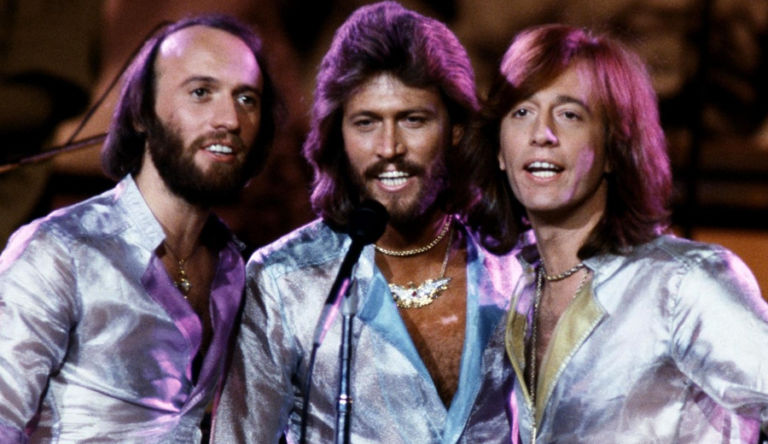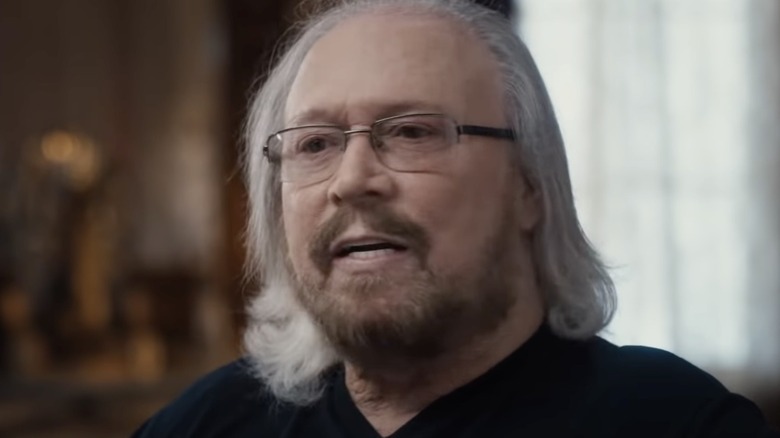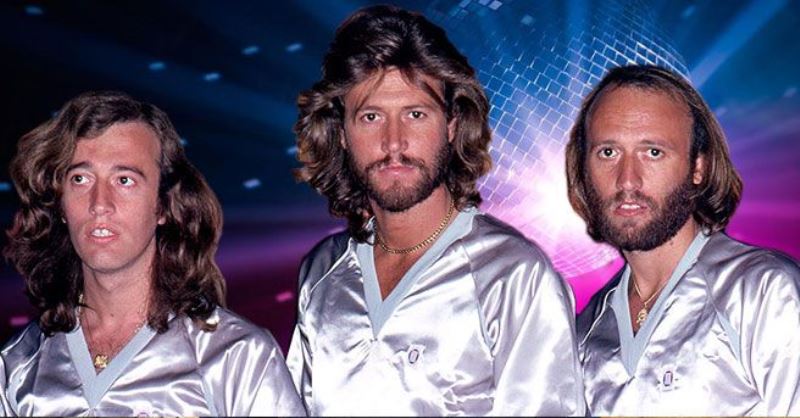
TUCKER: "Greenfields," produced by Nashville ace Dave Cobb is being positioned as Barry Gibb's move toward country, but it avoids the tantalizing prospect of hearing Barry go hardcore country in favor of the familiar sounds of, as the album's subtitle has it, the "Gibb Brothers' Songbook." As such, it serves primarily to remind you how deep is our love for the idiosyncratic classics that the Bee Gees created. It's only words, and words are all I have. You think that I don't even mean a single word I say. Dolly, no spring chicken herself, guides Barry very shrewdly into finding a way to make the increasing fragility of their aging vocal chords sound beautifully vulnerable.īARRY GIBB AND DOLLY PARTON: (Singing) Talk in everlasting words and dedicate them all to me.

I find Gibb's duet with Parton on the Bee Gees song "Words" the most effective and moving. TUCKER: Barry Gibb, at age 74, can't sustain that sort of extraordinary falsetto crooning anymore, and so it makes sense that he'd go to Nashville, where artists can age gracefully to perform duets with acts as various as Jason Isbell, Miranda Lambert and Dolly Parton. When the feeling's gone and you can't go on. I really should be holding you, holding you, loving you, loving you. Going home, I just can't make it all alone. Held in time, in a world of tears I slowly drown. And anyway, it turned out that cultural influence is ultimately unnecessary when you can create an utterly unique piece of delirious dance pop such as 1979's "Tragedy."īEE GEES: (Singing) Here I lie in a lost and lonely part of town. But the Bee Gees were always very modest. Cultural clout is handy, and they had some when their songs for "Saturday Night Fever" in 1977 rendered them momentarily the kings of white disco. I realized that the Bee Gees simply weren't as individuals interesting thinkers or commentators about their own work or about the times in which they lived. TUCKER: With a body of work as vast and gorgeous as that which the Bee Gees created, why, I wondered, did they never quite attain the pop cultural status of contemporaries like the Fab Four and the Stones? The answer becomes clear as the two-hour documentary proceeds. Keep me warm in your love, then you softly leave. And the moment that you wander far from me, I want to feel you in my arms again. (SOUNDBITE OF SONG, "HOW DEEP IS YOUR LOVE")īEE GEES: (Singing) I know your eyes in the morning sun. In America, it started in 1967 with the song "New York Mining Disaster 1941" and continued on through ballads like "I Started A Joke," "Lonely Days" and "How Deep Is Your Love." TUCKER: When you watch the new HBO Max documentary called "The Bee Gees: How Can You Mend A Broken Heart?" you're struck by just how many hits the Bee Gees had. It's as high as a mountain and harder to climb.īARRY GIBB: (Singing) Oh, you and me, girl, got a lot of love in store. Here he is singing the Bee Gees hit "Too Much Heaven" with Alison Krauss.īARRY GIBB AND ALISON KRAUSS: (Singing) Nobody gets too much heaven no more. The remaining Bee Gee, Barry, has just released "Greenfields," recorded in Nashville.

The brothers remade themselves in the '70s as spectacularly popular creators of a distinctive kind of disco music and continued to write pop hits for themselves and other artists. KEN TUCKER, BYLINE: Barry, Robin and Maurice Gibb, born in Britain and raised in Australia, discovered that the sibling harmony they were able to create was a pathway to stardom in the era of Beatlemania.

Jones? Do you know what it's like on the outside? Don't go talking too loud. It's just a photograph of someone that's I knew. (SOUNDBITE OF SONG, "NEW YORK MINING DISASTER 1941")īEE GEES: (Singing) In the event of something happening to me, there is something I would like you all to see. Rock critic Ken Tucker has a review of the film and the album. It's a collection of duets with an array of country music artists. And he's just put out an album called "Greenfields: The Gibb Brothers' Songbook (Vol. Of the three Bee Gee brothers - Barry, Robin and Maurice - only Barry is still alive. The new HBO documentary "The Bee Gees: How Can You Mend A Broken Heart" follows the group's career arc, how they became stars in the '60s in the wake of the Beatles and remained popular into the 21st century.


 0 kommentar(er)
0 kommentar(er)
